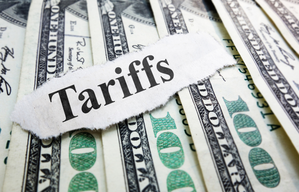
New Delhi – US President Donald Trump’s claim that India’s tariffs are “way too high” doesn’t stand up to scrutiny, as several countries — including the US — impose steep customs duties to protect their own domestic industries, according to World Trade Organization (WTO) data.
The WTO figures reveal that the US imposes substantial tariffs on a range of products:
Dairy products: up to 200%
Fruits and vegetables: up to 132%
Cereals and food preparations: 196%
Oilseeds, fats and oils: 164%
Beverages and tobacco: 350%
Fish and fish products: 35%
Minerals and metals: 38%
In comparison, India levies 150% on alcoholic beverages like whiskey and wine and between 100-125% on imported automobiles.
Other nations also maintain steep tariffs: Japan imposes nearly 400% on rice, South Korea up to 887% on fruits and vegetables, and the US continues to apply 350% on tobacco products to shield its domestic producers.
India’s simple average tariff rate stands at 17%, but the weighted average tariff specifically on US imports is under 5%, highlighting the relatively low actual impact on American goods. Moreover, India has been increasing its imports of US oil and gas to help reduce its trade surplus with Washington.
In fact, India has proposed significant tariff reductions — potentially slashing average rates from 13% to just 4% — in exchange for relief from tariffs introduced during the Trump administration.
Mahendra Patil, Founder and Managing Partner of MP Financial Advisory Services LLP, said the newly imposed 25% tariff on Indian exports by the US could pose a serious threat to key sectors including textiles, gems and jewellery, auto components, and pharmaceuticals.
“For Indian industry, the immediate priority is to diversify export markets, move up the value chain, and build stronger domestic resilience to deal with global trade shocks,” he said.
Patil also pointed to the recently concluded India-UK Free Trade Agreement as a critical opportunity, offering stable, tariff-free access to an important market.
“This moment calls for a more strategic and coordinated fiscal response,” he added. “Targeted support for affected export sectors, quicker refund mechanisms, and temporary enhancements to export incentives are vital. India must not only mitigate the short-term impact but also reposition itself more competitively within global value chains.”
India remains largely a consumption-driven economy, with domestic spending accounting for around 60% of GDP. In contrast, merchandise exports made up only 12% of GDP in FY24.
WIth inputs from IANS